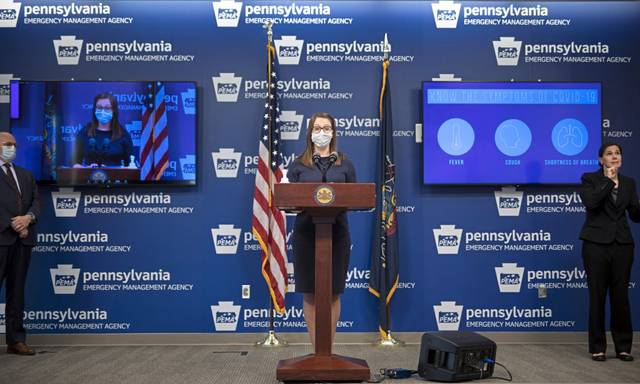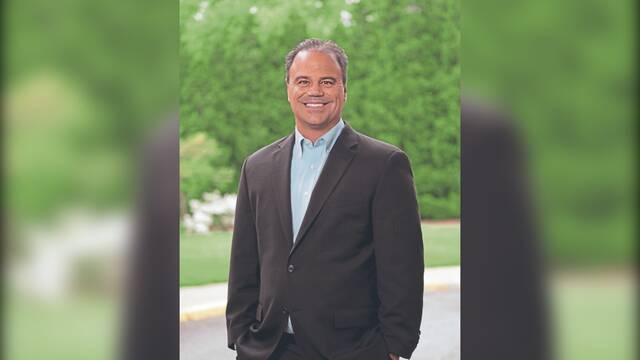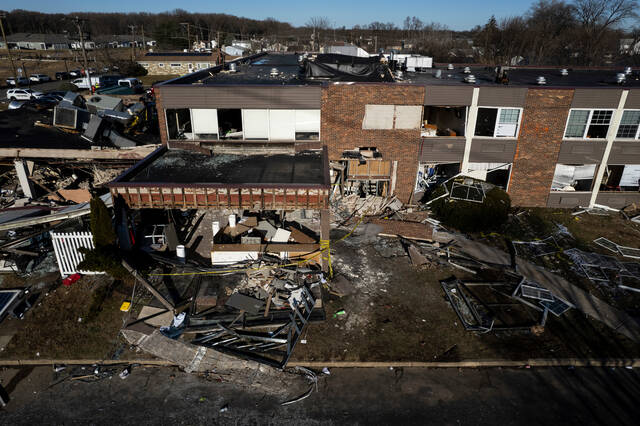Even as covid-19 cases skyrocket across Pennsylvania and case investigators prioritize who they will call, state officials on Tuesday urged everyone to please answer the phone and cooperate when investigators and contact tracers reach out to them.
“In order to effectively contact trace, we need Pennsylvanians to participate in case investigation,” said Lindsay Mauldin, the state’s Special Assistant on Contact Tracing. “If you test positive for covid-19 and are considered high-risk, you will get a call from a case investigator.”
New protocols announced late last month suggests that case investigators prioritize interviews with those who have tested positive within the past six days. Contact tracers from there, they suggest, focus on household contacts exposed in the past six days and people living in, working in or visiting congregate living facilities and other densely populated places.
After that, if resources allow, guidance suggests expanding the case investigation and contact tracing to people outside of the household who are at an increased risk of serious complications, are part of a cluster or who were exposed within the past six days.
The process, despite the prioritizations, remains the same. A case investigator reaches out to an individual who has tested positive, trying multiple times to reach the person, Mauldin said. Individuals are asked about their close contacts and where they went.
For someone who has been a close contact of someone who tested positive – that is, those who have been exposed to someone with the virus — are contacted by a contact tracer who will advise them on quarantine procedures and connect them with health and social supports.
“In either case,” Mauldin said, “I want to again emphasize the importance of answering the call and answering their questions to the best of your ability.”
She thanked those who have cooperated.
“You just might save the life of someone you love or don’t even know,” she said.
The number of people giving complete answers to case investigators has dropped as the pandemic has worn on. Of the 46,653 cases confirmed between Nov. 22 and Nov. 28, about 4.5% answered the question of whether they’d gone to a business in the two weeks prior. The low percentage is due in part to a lack of cooperation as well as the sheer volume of cases, Huff said. Because there are so many, it’s impossible for case investigators to reach all of them, hence the triage process put into place last month.
Of the 2,085 who answered that question, about 0.5% or 241 answered yes. Those broke down as follows:
- 48% (116) of those who said yes reported going to a restaurant;
- 29% (69) of those who said yes reported going to some other business establishment;
- 16% (38) of those who said yes reported going to a bar;
- 13%(31) of those who said yes reported going to a salon/barbershop; and
- 12% (28) of those who said yes reported going to a gym/fitness center
About 2,106 people answered the question of whether they’d attended a mass gatherings, and 191 — around 9% — said yes.
Huff also announced another expansion of testing sites, this time in Greene County, as well as Clinton, Warren, Delaware and Wyoming counties. The clinics will be open for drive-up and walk-in testing in Greene, Clinton and Warren. Clinics in Delaware and Wyoming will be drive-thru only.
All open on Thursday and will run from 9 a.m. to 6 p.m., and testing is on a first-come, first-served basis. Anyone aged 3 or older can be tested, and individuals need not have symptoms in order to be tested.
It’s the second round of pop-up clinics aimed at making testing more available in regions where the percent positivity and community spread continue to rise. The counties in which the pop-up clinics are available will change each week over the next 11 weeks.








